Partners continuing in Energize Co2mmunity
The Working Group Economic Geography at Christian-Albrechts University Kiel provides research on the dynamics of local and regional economic activities in a global production context. This includes studies on the Energy Transition, on regional innovation policies, or on cluster of creative industries.
The head of the working group is Prof. Dr. Robert Hassink. The team is responsible for project administration and management in addition to chairing the project’s steering committee since the Working Group is the lead partner of Co2mmunity. Furthermore, the Working Group is leading the Co2mmunity research activities, focusing on the development of a community energy knowledge base for the Baltic Sea Region.
During the extension phase Energize Co2mmunity, the working group remains in the administrative role.


Green City Experience GmbH was established in 2005 as the subsidiary of the non-profit environmental organisation Green City e.V. Through its energy projects and services, the Green City Experience GmbH makes a significant contribution to the Energy Transition and helps to bring a climate-friendly, citizen-owned energy supply at stable prices while conserving valuable resources.
In Co2mmunity, the Green City Experience GmbH develops and establishes a peer-review and tandem system between frontrunners and followers to support the transfer of knowledge. Furthermore, these transnational tandem agreements between identified communities help strengthening long-term forms of cooperation and collaboration for promoting community energy projects.
In EnergizeCo2mmunity, the Green City Experience GmbH will coordinate the transnational pairing of RENCOPs and community energy pilots through study visits and exchange of experiences of CE implementation into the pairing process. Green City Experience GmbH also will prepare a structured exchange of experience as well as steer the pairing activities and oversee the production of the documented pairing stories.

Green Net Finland (GNF) is a Finnish clean-tech cluster developing a smart and low-carbon urban environment. GNF brings together the expertise and resources of Finnish cleantech companies, scientific and educational institutions, and public authorities. Project development and project management are GNF core competences. They are creating outstanding development projects and other activities aiming at energy and resource efficient low-carbon urban environment. GNF promotes Finnish cleantech innovations and the growth of business within said industry. Furthermore, they also provide matchmaking services for international companies looking for information on the Finnish cleantech sector and partnerships in Finland.
In Co2mmunity, GNF coordinates the Helsinki region’s RENCOP, which focuses on solar electricity community projects in apartment buildings.
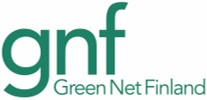
As an intrinsic part of the global environmental movement, the role of the Heinrich-Böll-Foundation Schleswig-Holstein is set to promote sustainable societal and political change. We very much see ourselves in the role as a facilitator for civil society to engage in such democratic debates. Our aim is to enable citizens to become an active player for a sustainable societal transformation. Together with other associations within the initiative “Energiebürger.SH“, the foundation is fostering the Energy Transition by means of empowering citizens through practice-oriented courses, building regional and local energy networks, and encouraging citizen initiatives.
Within the Co2mmunity project, we have created an informal RENCOP initiative, the “Klimanetzwerk – Rendsburg/Eckerförde”. It is a regional strategic (community renewable energy) network. It entails key regional civil society organisations and associations: the evang. luth. Kirche (Luth. Church), Heimatbund (Heritage Association), Naturfreunde (Nature friends), Landfrauen (Country Women’s Association), Volkshochschule (Adult education center), the climate management of the regional authorities (Kreis Rendsburg Eckernförde), as well as a number of various CE Experts. Furthermore, the foundation led the group of activities 3.2 stimulating CE projects in partner regions, and as an output developing the participatory guidelines.
In the next phase of the project – Energize Co2mmunity we will further sustain our regional RENCOP, while on one hand facilitate concrete local projects which have been initiated in the realm of the RENCOP. Our aim is to develop appealing activities so that we can reach out to a wider audience, including a platform for mutual learning and exchange. We are now in the process of identifying how we, and also the Klimanetzwerk – Rendsburg/Eckerförde, can support these goals.
The Kaunas Regional Energy Agency was founded in 2003 under the SAVE II programme. The main objectives are :
- to support the Lithuanian economy in implementing directives of EU
- to dessemiate know-how of EU countries and to accelerate the integration of Lithuanian subjects in the EU
- to develop international contacts and promote the local cooperation
- to dessemiate know-how by seminars, workshops and publications
- to promote and develop a rational use of energy and the use of RES
- to contribute to environmental protection
Through our activities in Energize Co2mmunity, we will promote the development of electricity production from renewable resources in households and communities. The shared experiences, recommendations and guidelines developed by the Partners of Co2mmunity project will be used. Our main goal is to implement a real life example of an energy community, thus strengthening the interest of residents and communities in renewable energy. We hope to achieve this goal in close cooperation with partners from Denmark.
In Co2mmunity, the Kaunas Regional Energy Agency studied possibilities and identified barriers to community energy while spreading international best practice and promoting the activities of frontrunning municipalities. The agency also prepared proposals and gave recommendations for renewable energy financing for local communities and distributed this knowledge through seminars, workshops, and publications/handbooks as part of their local RENCOP.
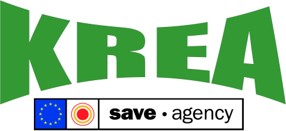
The Danish municipality Middelfart is part of the Triangle Region. Denmark’s Triangle Region is a sub-region which consists of 7 municipalities, and is home to 350,000 people and around 18,500 companies. The municipalities in the Triangle Region focus on creating and stimulating RENCOPs.
In Co2mmunity, Middelfart Municipality will work with different RENCOPs in the Triangle Region. The goal is to create RENCOPs where citizens are in focus and the main driver of the projects. RENCOPs are an excellent way to implement renewable energy locally.
During the extension stage Energize Co2mmunity Middelfart Municipality will work on piloting the concept “common purchase of heat pump” in a “real life” project. Within the extension stage a non-profit distribution of heat pumps concept will be tested.

Riga Planning Region consists of 30 local municipalities, including Riga, the capital of Latvia. It is the most densely populated region and home to 1,089,960 inhabitants which is 50.5% of the total population of Latvia.
In Energize Co2mmunity, Riga Planning Region will build upon the RENCOP’s established during the implementation of the regular project Co2mmunity and the renewable energy community pilot projects already initiated at one of its local municipalities – the municipality of Mārupe.
During the implementation of Energize Co2mmunity, project partner Riga Planning Region, in cooperation with its major stakeholder and associated partner – the municipality of Mārupe, will continue to implement an already existing community energy pilot project in Mārupe that provides for establishing and monitoring of two citizen-driven RENCOPs. The aim of these activities is to demonstrate the ways how factors that impede the establishment of energy cooperatives in Latvia can be overcome in practice. Two pilot sites have already been identified at Mārupe – a five-storey apartment building and a row house that contains five semi-detached apartments. Both pilot projects imply use of photovoltaic or thermal panels to produce heat and/or electricity for local communities.
Another goal is to ensure the dissemination of the gained knowledge and results of the pilot projects among other municipalities located in the region. Certain activities include exchanges of experience with the project partners in Germany and a series of local events to further the dialogue between policy makers, local communities, researchers and service providers. An auxiliary activity regards elaboration of recommendations to national energy planning policy documents and/or certain financial support mechanisms for renewable energy communities in Latvia. This will be done in cooperation with the national energy policy maker – the Ministry of Economics of Latvia.
In addition, Riga Planning Region will actively cooperate with local CE stakeholders and involve them in the implementation of project activities both on a regional and an international level, for instance, through workshops and exchange trips.
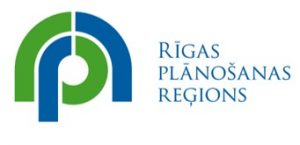
Tartu Regional Energy Agency (TREA) focuses on renewable energy sources and energy efficiency in both public and residential buildings within Estonia. TREA inter alia develops energy action plans for municipalities and feasibility studies for district heating systems. They also look into renewable energy systems in buildings to make specific recommendations. Thereby, TREA provides independent advocacy for regional and local stakeholders, such as municipalities and communities while working closely with the Ministry of Economics and Communication.
TREA together with Tartu City will develop one of the Energize Co2mmunity pilot – Tartu citizens PV park. TREA is also responsible for coordinating the elaboration of summary of overcoming barriers to CE-projects (O2.3). The partners develop for each of the addressed and worked on barriers a brief summary including results, process description, success factors as well as potential hindrances during the work and how they overcome them.
TREA coordinates the development of policy recommendations based on community energy (CE) in the RENCOPs. The main output of the activities will be a White Paper with suggestions on how to improve national and regional policies on CE to achieve sustainable energy now and in future.

Partners of the intial Co2mmunity project
Aalto University is comprised of six schools with more than 17,000 students and 4,000 staff members. The university has a long research tradition in the field of energy, making it a beacon for Finland’s energy future. Furthermore, there is significant headway in finding and developing solutions for a sustainable energy supply as approximately 24 professors are working in the field of energy, society, and information.
Karoliina Auvinen and Salvatore Ruggiero from the University’s Department for Management Studies support Co2mmunity by coordinating Co2mmunity’s research activities. The research activities focus on successful examples of community energy (CE) projects from the Baltic Sea Region (BSR). The analysis of these cases will serve to identify barriers related to CE projects, elaborate policy recommendations, create a CE toolkit, and promote CE initiatives in the BSR.

The Energy Agency for Southeast Sweden supports local and regional actors to achieve a sustainable energy system. The agency is owned by local and regional authorities focusing on energy efficiency, renewable energy, and mobility. In Co2mmunity, they engage in compiling an overall RENCOP roadmap, and in the final phase, they will execute the marketing activities for said roadmap.

The Foundation for Sustainable Energy (FNEZ) is a non-governmental organisation and an independent think-tank promoting sustainable growth in the energy sector. FNEZ is specialised in conducting social dialogue and environmental impact assessments for energy investments. FNEZ has authored numerous positional statements, publications, and guidelines as a long-term partner of government, parliament, and the administration.
In Co2mmunity, FNEZ analyses national and regional conditions in order to develop RENCOP in Poland and thus implement community energy projects.
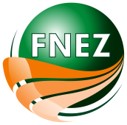
The Lithuanian Energy Institute (LEI) is a state funded research organisation that has over 60 years of research experience in diverse energy sectors. Main competences related to the Co2mmunity project include research of energy sector planning, estimation and modelling of renewable energy resources, energy economy, development of technologies, research on technology application, analysis of energy efficiency issues, preparation of feasibility studies, action plans, and the analysis of legal frameworks.
The main role of LEI in this project is the creation of an online database of community energy (CE) projects in the partner countries. LEI will gather information about CE projects in Lithuania and partner countries, perform analysis of the initial situation regarding possibilities for the implementation of CE projects, while also contributing to the activities of other work packages.
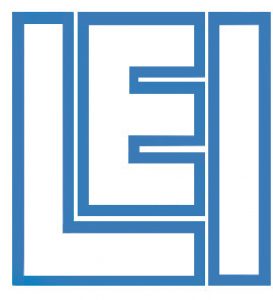
Lund University has 47,700 students and 7,500 employees and is ranked 78th in the world, according to the QS Ranking 2017/2018. The Department of Human Geography participates in Co2mmunity. Geography is the highest ranked subject at the university, currently ranked 26th in the world.
Lund University leads two tasks of the Work Package 2. The first being the scientific review of knowledge on drivers and barriers for community energy, and the second the process analysis of the establishment and development of RENCOPs.
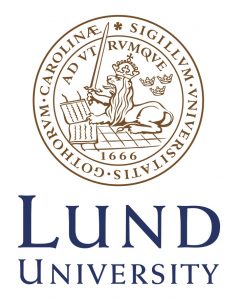
The Regional Council of South Ostrobothnia is a statutory federation of municipalities consisting of 17 municipalities. The Council is a development organisation that acts as an active and cooperation-orientated initiator in regionally important development projects. Work is done within regional development and planning, culture, internationalisation, regional co-operation and advocacy, and versatile project activities.
In Co2mmunity, the Council is the leader of the Work Package ‘Bringing CE on the socio-political agenda‘ as well as of one of the corresponding activities ‘Developing BSR-wide policy recommendations‘. Furthermore, the Council and Thermopolis run the regional RENCOP of South Ostrobotnia.
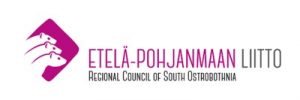
Thermopolis Ltd. – Energy Agency of South Ostrobothnia is a non-profit company, situated in the rural region of South Ostrobothnia in western Finland. Thermopolis partakes in multiple development projects both regionally and internationally. It offers impartial energy counseling and consulting services. The issues promoted are renewable energy, energy efficiency, and energy saving.
In Co2mmunity, Thermopolis is responsible for country-specific handbooks. As one of the main outputs of Co2mmunity, these handbooks will deepen the understanding of community energy (CE) in the Baltic Sea Region. Also, these handbooks will provide practical and local insights into RENCOPs and CE.

